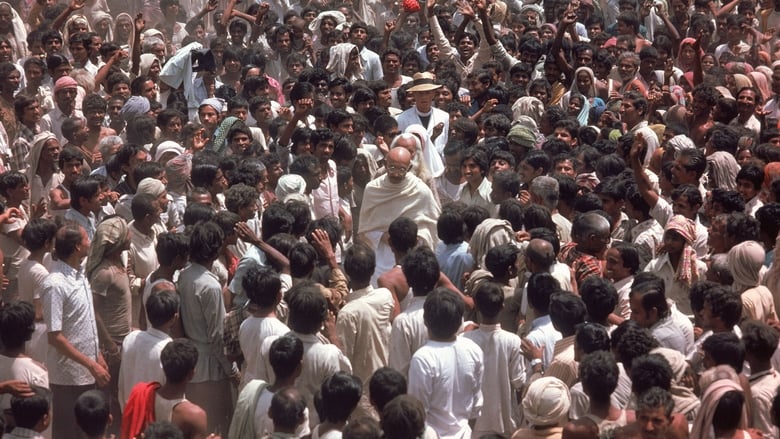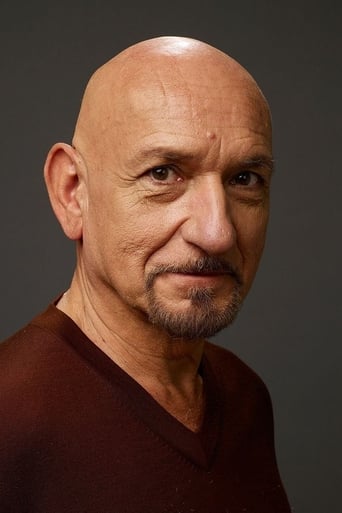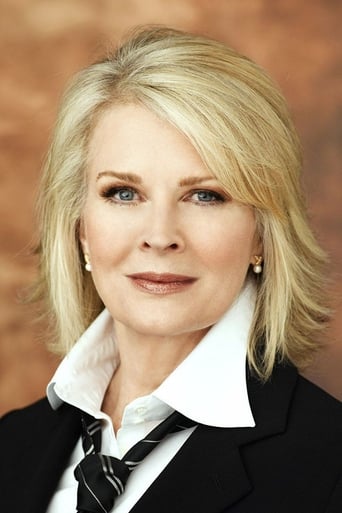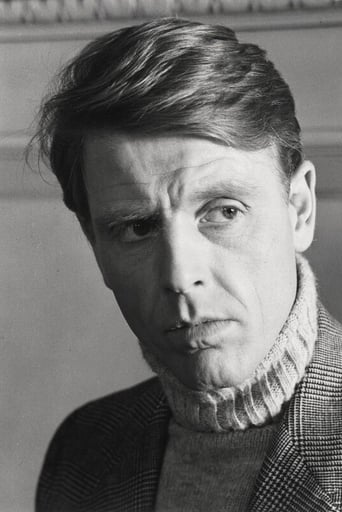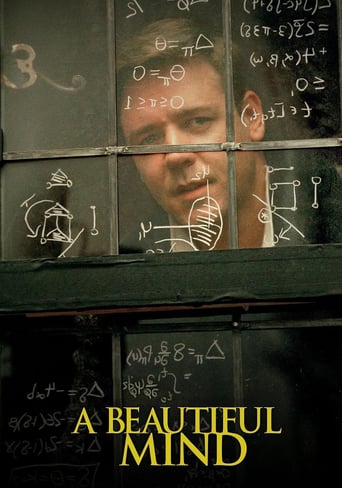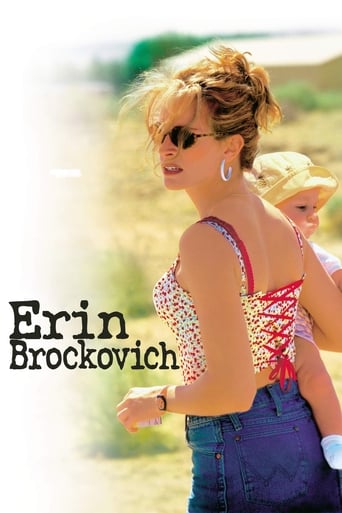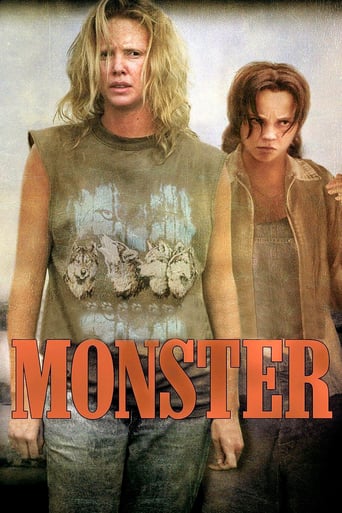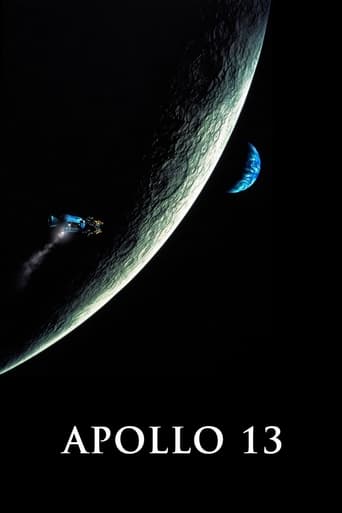Gandhi (1982)
In the early years of the 20th century, Mohandas K. Gandhi, a British-trained lawyer, forsakes all worldly possessions to take up the cause of Indian independence. Faced with armed resistance from the British government, Gandhi adopts a policy of 'passive resistance', endeavouring to win freedom for his people without resorting to bloodshed.
Watch Trailer
Cast


Similar titles
Reviews
Really Surprised!
Let's be realistic.
It's the kind of movie you'll want to see a second time with someone who hasn't seen it yet, to remember what it was like to watch it for the first time.
Let me be very fair here, this is not the best movie in my opinion. But, this movie is fun, it has purpose and is very enjoyable to watch.
Film Review: "Gandhi" (1982)Director Richard Attenborough (1923-2014) at the peak of its creative powers, accumulating a massive independently-gathered budget throughout this international UK-based production on the real-life events of a historic cinematic-compelling figure Mahatma Gandhi (1869-1948), in this case with amazing-resemblance portrayed by actor Ben Kingsley, who carries the picture with devote charisma, when also-producing director Richard Attenborough captures the life and death of "Gandhi" from his early days as law school graduate in race war-mongering "South Africa" at the turn of the 20th century towards the outbreak of World-War-One in 1914 before this overly-righteous regarded character gets glorified to a legend of modern resistance against Imperalistic regimes in this case the India-occupying British Empire, which like no others indulges into colonialism, starting exceedingly under iron-handed ruling Queen Victoria (1819-1901).Cinematography by switching lighting cameramen and the décor of the picture are researched to the utmost of authenticity by production designer Stuart Craig, also known for winning Academy-Awards for "Dangerous Liaisons" (1988) and "The English Patient" (1996), in favors for a solidly as towards classic Intermission striking director, who has not shy away from presenting his fellow country-men as barbarous, relentless, arguably cruel ingeniously-performed due to impeccable dignity by actor Edward Fox, at age 44, when endless suffering scenes in almost two decades of the leading character's encampment under lowest life-form conditions with recurring "Hunger-Strikes" that word-of-mouth reaches the highest occupying military ranks and governmental monarchic rulers that the end of a seemingly-vvasted life of less than joy proportions gets only justified by a county's independence declared on August 15th 1947, when comparison toward today's India got closer then ever to western civilization policies of the richest and the fittest in a global player ongoing cold-served undermining war of dominion, where reason on frequent basis must perish. This "Best Picture of 1982" honored with eight Oscars, including Best Actor for Sir Ben Kingsley and Best Director Sir Richard Attenborough (1923-2014) at the Academy Awards ceremony in its 55th edition, winning over fairly-competitive pictures as Paul Newman (1925-2008) starring court-room Drama "The Verdict" directed by Sidney Lumet (1924-2011) and foreign-hostage-taking Political-Drama "Missing" directed by Costa-Gravas with "E.T.-the-Extra-Terrestrial" directed by Steven Spielberg and "Tootsie" directed by Sidney Pollack (1934-2008) keep on Hollywood entertainment factors intact.© 2018 Felix Alexander Dausend (Cinemajesty Entertainments LLC)
Gandhi. Was he really responsible for India's early independence or was he just a men like everyone else? Watching the movie "Gandhi", which was written by John Briley and produced and directed by Richard Attenborough in 1982, you will get a clear answer to this question. You will also get an inside view of Gandhi's whole life. His successes and his failures. You will see how he changed because of everything that happened to him, as well as India's and the world's reaction to him. This biographical drama won eight Academy Awards and was the most successful film in 1982, which was a big surprise as the film almost never got made. Attenborough tells Gandhi's story: The story of an Indian lawyer, who returned from South Africa to help his country gain its independence through successive acts of non-violent protest. This three-hour film probably tells one of the 20th century's most remarkable stories as Mahatma Gandhi created a new form of peaceful protests in India, which have been affecting history. The movie starts with Gandhi's assassination and then goes 30 years back in time to show his key moments in his struggle of creating a peaceful India. Gandhi, however, is the kind of man, who would do anything to achieve his goal, even if this means to go to prison a couple times or nearly starving to death. It took him 30 years to accomplish what he wanted and I think this shows that everyone is able to achieve his goal with a little patience even if it seems impossible. Even though the actor Ben Kingsley won the Academy Award of Best Actor for his stunning role, one of the eight Academy Awards this film won, there are really good performances from other actors as well like Candice Bergen, John Gielgud, Edward Fox and many more. Even if the film did not win the Academy Award for best original music score, for which this film was nominated, the music is still stunning and creates a different feeling for every situation. Attenborough, who really wanted to create this movie, created an awesome drama, which helps to understand Gandhi's point of view, even if it does not have a happy ending.
As a film lover, I have recently gotten suspicious of biopics and historical films. These kinds of movies tend to sugarcoat the truth to present almost typical Hollywood stories, for instance, making some people who weren't all that bad, the main villains, simply so the audiences can identify an antagonist (The Aviator is a big offender in this category). Gandhi (1982) falls into many of the these traps that other biopics fall into and as a result, becomes an over- glorification, a complete lie, and something that almost doesn't resemble a story, but merely a collage of events.The film basically presents us with the major events of Gandhi's career: his time working against British oppression of Indians as a lawyer in South Africa, the Amritsar massacre, the March of Salt, Gandhi's assassination, etc. The events are simply presented, very accurately from what I read about them, but the film leaves out many things about him that weren't very noble. Reading about events in Gandhi's life from all different sources, like books and online articles, I can safely say that I am appalled by some of the things that this man has done.When fighting British oppression of Indians in South Africa, he basically ignored native South Africans that have lived in the country much longer than any Indian or British person. Second, he was cruel to his family, so much so that his son spoke out against him and later died as a drunk; he even negatively compared his own wife to a cow. Additionally, when his wife was sick, he refused to give her British medicine and yet was willing to take it himself when he had malaria. After Hitler came to power and WWII started, he wrote to Hitler, addressing him as a friend, and after the war was over, he himself said that many of the Jews from the Holocaust should have let themselves die and submit to the oppression of the Nazis. Any sensible man or woman would know that this is could be nothing more than an insane and horrible suggestion and that it would be simply impossible to deal with the Nazis using Gandhi's ideas. This was the Gandhi that so many people idolized? I even read an article from The Guardian saying that a biography about Gandhi was forbidden for publication because it revealed too many things about his life.Other than the fact that the film is lying to everyone who sees it, the film is just too preachy. It doesn't barrage you with moral lessons every second of screen time, but half of the dialogue is moral lessons and guidelines on life and doesn't feel very natural. Even in the beginning, when it shows Gandhi's funeral, an announcer covering the funeral outright tells the audience (indirectly) what to think of Gandhi and how others, like Albert Einstein viewed him, and that we should view him that way too. Richard Attenborough, the director and producer, was actually advised against glorifying Gandhi. I don't get why he didn't take that advice to heart, considering that this was a passion project to him. Even some of the British officials in the film act like two-dimensional bad guys. One of the only positive things I can say about this film is that Ben Kingsley nails it as this film's version of Gandhi. He makes me wish that the Gandhi that has been glorified by the world was a real person, instead of the flawed and sometimes frightening human being that actually existed on this Earth. The film also has a genuinely good message, but like I said, it's just turned into a preachy sermon throughout most of the movie.What else can I say? I was so disappointed to realize that so much of this man's life was left out and simplified simply to be more Hollywood-friendly and attract more crowds. That is complete BS. What a movie biopic should do, I think, is have the courage to present the uglier details of a person's life and as a result, feel more challenging. Plus, don't preach a moral lesson to us if a person lived by one, because that's being unsubtle. Let us figure it out for ourselves. Some of those things I said were applied in the excellent film, Raging Bull, by Martin Scorsese. Not only is the film mostly true to life, according to Jake LaMotta, whom the film was based on, but it wasn't afraid to portray LaMotta as a brute of a man like he was in his boxing heyday and it didn't outright tell you what to think of LaMotta or how he was thinking; instead, it kept you guessing with Robert De Niro's performance and the cinematography. Gandhi is just too afraid to turn a man who undeniably made major contributions to humanity into anything less than what people wish to see him as. As a result, this film is disgraceful and is too much of a piece of Oscar bait to be genuinely good. I'm sorry, members of the Academy, but you made a terrible choice for the Best Picture of 1982.
The film begins on the day of Gandhi's assassination on 30 January 1948. After an evening prayer, an elderly Gandhi is helped out for his evening walk to meet a large number of greeters and admirers. One of these visitors, Nathuram Godse, shoots him point blank in the chest. The film then cuts to a huge procession at his funeral, which is attended by dignitaries from around the world.The early life of Gandhi is not depicted in the film. Instead, the story flashes back 55 years to a life-changing event: in 1893, the 23-year-old Gandhi is thrown off a South African train for being an Indian sitting in a first-class compartment despite having a first-class ticket.Realising the laws are biased against Indians, he then decides to start a nonviolent protest campaign for the rights of all Indians in South Africa. After numerous arrests and unwelcome international attention, the government finally relents by recognising some rights for Indians.


